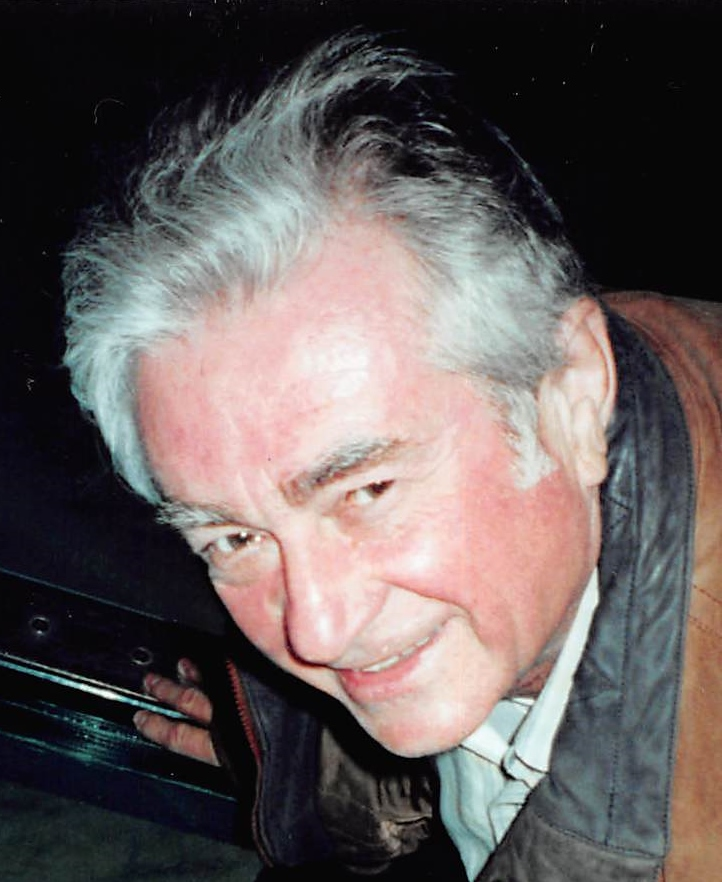

Obituary


Obituary of Attila Micheller
Attila Micheller, age 84, passed away on Friday, August 18, 2017, at his home in Warren. Born in Mez?csát, Hungary, he had resided in several places around the world, finally settling in New Jersey with the love of his life Birgitta. His journey has taken him thru dangerous war torn countries fleeing for his life, to Sweden, to Chicago, IL, to Maplewood, NJ and finally to a farm in Warren in 1977. This is his story:
Attila's education began in Hungary during the era of World War II. After finishing elementry and secondary school in Vasvár, he went to study the trade of metal working and locksmithing in Szombathely. After the war, Hungary started rebuilding and the people were positive with big hopes and ambitions to rise up from the rubble and ashes.
Before he was drafted into the Army, he applied within the Army to aviation school to become a pilot in Buda?rs, Hungary. Due to his family's politcal views and social status he was not accepted. During the Soviet occupation he was 20 years old and drafted into the Hungarian Army's labor camp in Szuhakálló. After a year he was relocated to another labor camp in Komló, where he worked as a miner until his health deterated due to the terrible working conditions. After 8 months in the mines, he was transferred back into the regular Army, stationed in Esztergom and assigned to a tank unit, where soon after, he was discharged as a corporal.
He moved back home to Oszkó with his parents and started working as a metal worker for the Hungarian National Transportation (MÁV). After a while he requested a transfer to train as an engineer. First he became a "Stoker" one who adds coal to the boilers, then soon he was driving the locomotives with passengers from Celldömölk to Záhony.
On October 23rd 1956 The Hungarian revolution begins: Attila went home on that morning with the last train that was on the tracks in the country. In the center of the village of Oszkó and elsewhere in Hungary, youngsters were gathering and the fever of revolution against the Soviets was brewing. People were very enthusiastic for a chance to be free from all armies and the Soviet Communist Dictatorship. There were demonstrations, a threat of possible violence and then lawlessness broke out. Budapest was the epicenter of this conflict.
Attila took part collectively with the dissidents and formed a revolutionary Committee on a local level and became their leader. He made speeches in town and in the nearby town of Vasvár. Attila's words calmed the groups of dissidents who were angry with the treatment of the Secret Service called "ÁVÓ" The ÁVÓ was ruthless, brutal and barbaric like the Gestapo. They were unreasonably cruel to people, even randomly shooting into crowds of demonstrators.
Attila the Freedom fighter became known to the ÁVÓ for his speeches against the Communists and on the evening of November 4th he bid farewell to his parents, sister and brother, and went into hiding in Papkeszi in his cousin's home. That evening of November 4, 1956, preparations for the Russian's retaliation began.
Russian tanks took position on the main roads for the actual start the next day, November 5, 1956. Russian officals were looking for Attila and all those who were known to be against the Communists. Fresh Soviet troops with heavy equipment – the new T-52 tanks by the thousands – occupied the country. Radio Free Europe transmitted false promises to the people of Hungary for help from the Western powers. The hope was very slim and started to fade so people started fleeing to the West. This was the time when over 200,000 people left the country to Austria and Yugoslavia.
That was when Attila went to Yugoslavia with three of his friends. When they were fleeing from Hungary to Yugoslavia, there was a 6:00pm curfew and they ran into a group of Russian soldiers around that time. "I braced myself to feel a bullet in my body – my life depended on the good will of this Russian soldier to let them pass." He lived to tell this story. He didn't know where they were going in this strange territory – not even speaking the language. They tried to go through Yugoslavia to Austria and they were captured by the Yugoslavian Militia and brought to the Police Station for interrogation. After a couple of days they were taken to a place in the mountains called "GRAD BORL". There, they were questioned again and provided all their information. After about two weeks, they took them to Croatia to a very famous concentration death camp – named "GEROVO".
Attila and his two friends were the first to arrive at that camp along with many other refugees. They had very, very poor living conditions. There were about 1,800 refugees in this camp – approximately 100 to 125 people in one room – five people to two beds and only one blanket.
His stay at the camp was from December 1956 to the end of April 1957. It was a bad winter and shortly after they arrived, there was a big snowfall. Everyday was spent cleaning snow from the walkways. Attila split wood for the bakery and was paid about a loaf of bread a day which he felt privlaged to have the opportunity to do some type of work. People were constantly frustrated by not knowing how long they would have to stay and when they would be able to leave. It was very boring for the refugees. There was really nothing to do: some people read, some people played cards.
At one point, during his captivity, a small group of five people escaped but they got caught by the Yugoslavian police. The refugees were all lined up in the camp and the escapees were marched in front of them so all could see they got caught. They were beaten in front of them. One died just a few days later from his injuries. That incident stopped anyone else from escaping.
A Swedish Delegate came to the camp and by fate, Attila was accepted to go to Sweden to start a new life. From Yugoslavia he traveled to Sweden by train through Austria and Germany, then on a ferry boat to Sweden. In Sweden, it was the first time he enjoyed freedom. He was welcomed and started learning their language and got jobs. He was in Sweden for two years and for two years he had a good life.
He was grateful to the good Yugoslavian and Swedish people for their kindness and support.
After two years in Sweden he traveled to the United States for the American dream and started over in Chicago, IL where he lived for a couple of years working various jobs. He met Birgitta in Chicago at a Swedish Club and they fell in love. In 1960 they traveled to New Jersey where Attila married Birgitta and they started a family.
Attila worked for the Airoyal Company in Maplewood, NJ and continued his education at New Jersey Institute of Technology where he received a degree in hydraulic engineering. Airoyal advertised their service department as not only large enough to support engineering and service, but promoted their service man that spoke five different languages. Yes, Attila spoke Hungarian, Swedish, German, Russian and English.
In 1969 Attila broke away from Airoyal to establish Micheller Hydraulics, Inc. and then added his son as part of the company in 2001. He developed a thriving business which supports several families and remained at the helm right up to the end.
Attila socialized and volunteered his time with a couple of organizations that were important to him. The VASA order of America, Lodge Linne #429; a Swedish Club in New Providence, NJ. where he and his wife belonged for 32 years. Of course he was truly committed and very generous to the Hungarian Community. He has Sponsered several hungarians to come to America to have a better life, taking them into his home and giving them a new start. He was also a member of most local Hungarian clubs in NJ. Most notably and special to him is the Hungarian Round Table Charitable Association, located in Linden, NJ. In 1975 he joined that club and two years later he was elected President. He remained President for 40 years giving much of his time and energy to benefit others.
His proudest moment came when he was honored by being choosen as president of the American Hungarian Federation in 2007 and remained in that position until 2010. He has helped countless hungarians around the world.
He is survived by his wife Birgitta, two children John and Margareta and five grandchildren, also his sister Éva (Csöpi) in Hungary.
Thursday
24
August
Visitation at Funeral Home
4:00 pm - 9:00 pm
Thursday, August 24, 2017
Higgins Home for Funerals
752 Mountain Blvd.
Watchung, New Jersey, United States
Need Directions?
Friday
25
August
Mass
7:00 pm
Friday, August 25, 2017
St. Ladislaus Church
40 Plum Street
New Brunswick, New Jersey, United States
Need Directions?


About Us
We, the Higgins family, for over 135 years and four generations, have been privileged to serve the families and the community as a whole with professional service and personal attention.
WATCHUNG Location
752 Mountain Blvd
Watchung, NJ 07069
Steve Szczubelek, Manager


